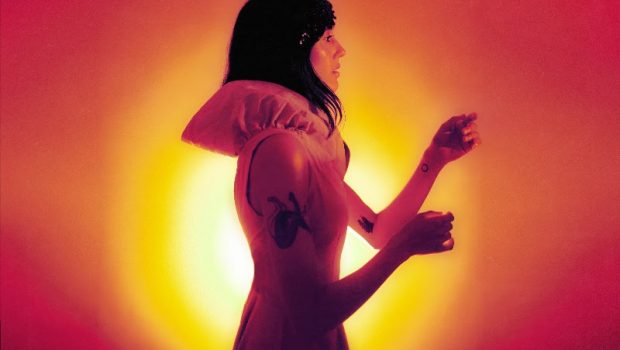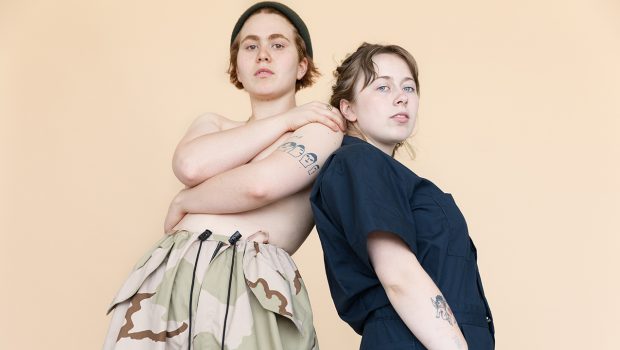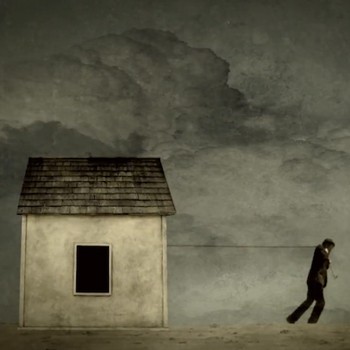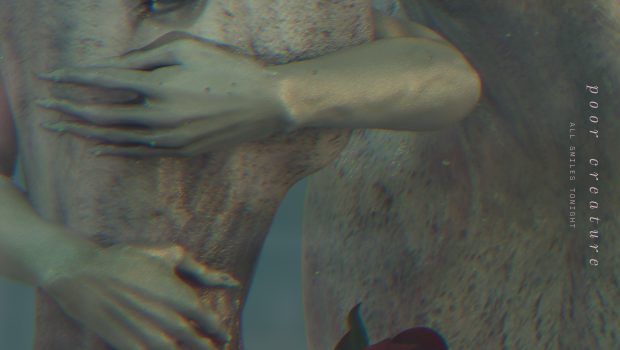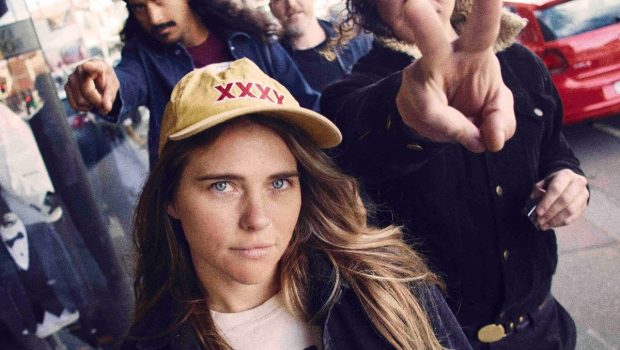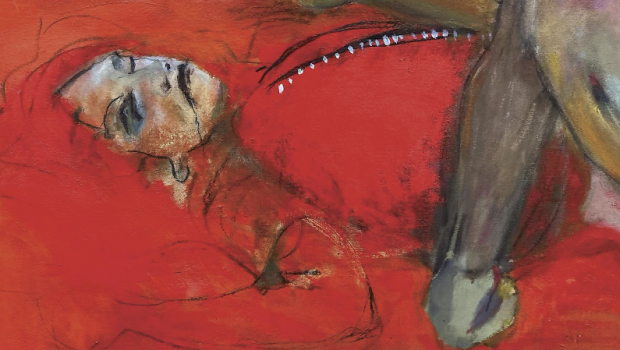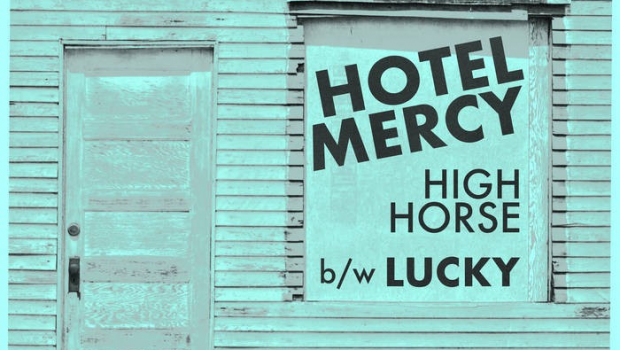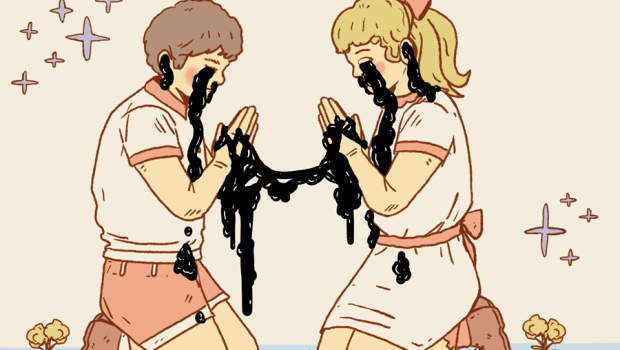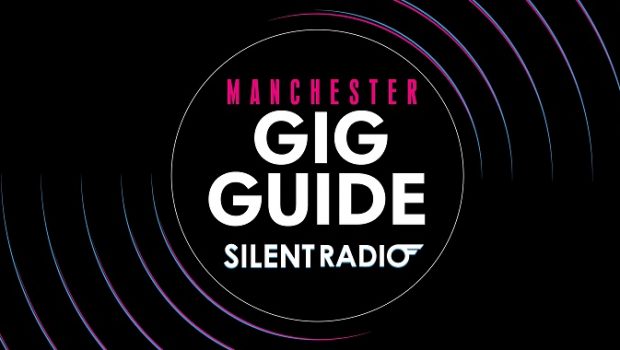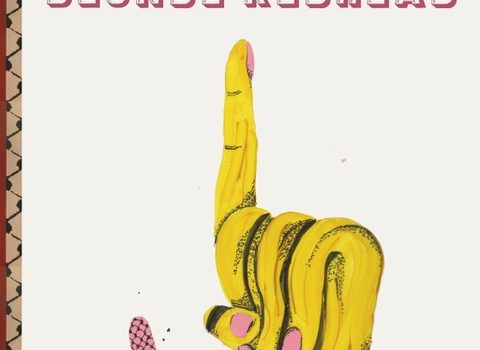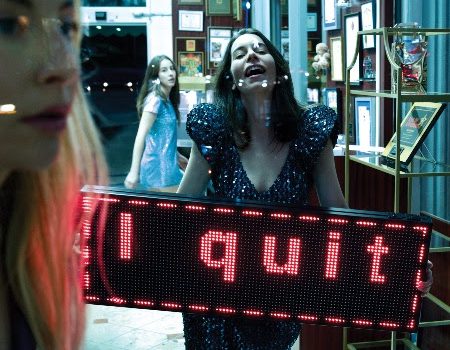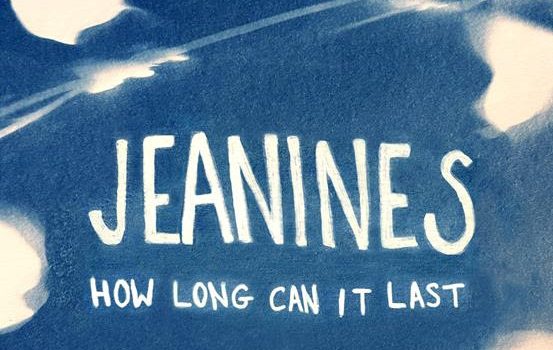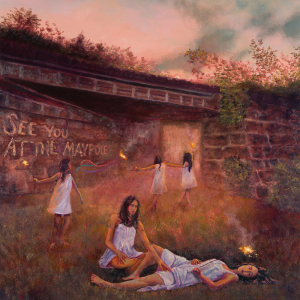 The backdrop to ‘See You At The Maypole’ is heartbreaking. Nandi Rose, who performs as Half Waif, was expecting her first child but in December 2021 a scan revealed no heartbeat. The treatment for a missed miscarriage is most effective with two drugs, mifepristone and misoprostol. However, Rose was only prescribed the latter so her body did not recover as it should and for the next four months she was literally carrying death inside her. While an additional procedure finally allowed her to move forward, it was accompanied by the news that her mother-in-law had been diagnosed with an aggressive form of pancreatic cancer.
The backdrop to ‘See You At The Maypole’ is heartbreaking. Nandi Rose, who performs as Half Waif, was expecting her first child but in December 2021 a scan revealed no heartbeat. The treatment for a missed miscarriage is most effective with two drugs, mifepristone and misoprostol. However, Rose was only prescribed the latter so her body did not recover as it should and for the next four months she was literally carrying death inside her. While an additional procedure finally allowed her to move forward, it was accompanied by the news that her mother-in-law had been diagnosed with an aggressive form of pancreatic cancer.
Rose began the process of writing ‘See You At The Maypole’ to save herself. However, despite what the background might suggest, it is not a dirge or solipsistic self-pitying album. While the lyrics do tackle these themes, they also emphasise the value of her relationship with people and the natural world. Even more importantly, the music has a lightness to it, worked out with friend and long-term collaborator, Zubin Hensler, who co-produces as well as contributing guitar, bass, percussion and synths at various stages. Across its seventeen tracks there is a dazzling array of instrumentation as it is subtly layered with clarinet, trombone, upright bass, violin, harp and extra vocal sparkle from the New York City-based choir, Khorikos.
An emotional beginning, ‘Fog Winter Balsam Jade’ starts with a statement of intent, “I will not despair this time of year” before outlining that “I’m burying a secret / that grew inside me like a moon”. With piano, electronics and her clear voice, bolstered by the choir, to the fore, it is a stirring introduction, including the revelation, “And I thank you. You were my first / You made me a mother.” On ‘Collect Color’, she is buying bleach and a pregnancy test kit at the store and observing morning glory climbing through the wire. In the song’s exquisite layering, it is reminiscent of Julia Holter, who feels like a major influence on the record. ‘I-90’ is ballad-paced, piano and splintered-effect led and sees her remembering an old flame whose father died on Father’s Day, Khorikos adding to the emotion. Rebecca El-Salah’s harp adds subtle decoration to ‘Figurine’ which marries heartbreaking description (“I felt it growing in me / And now everything is gone”) to a determination (“It’s gonna get so much better / You’ll see.”) ‘Heartwood’ is partly spoken word, its synth bubbling and then exploding in a celebration of nature.
With one of the album’s most memorable melodies and the choir adding to fluttering vocals, ‘Big Dipper’ is particularly stirring. The spoken word and auto-tuned ‘Shirtsleeves’ is a brief sketch of caring for someone whose fingers are too arthritic to fasten his shirt buttons. While vocals and piano dominate, initially in slow-burning and spare style, trombone and harp add texture to ‘Sunset Hunting’ on which Rose displays resilience, facing the grave yet going out in search of colour. ‘Dust’ is highly dramatic in its dual drum focus and contrasts how a movie would portray her as getting better every day with the messy reality.
In its use of percussion and synths, layered with violin, harp and Rose’s auto-tuned vocals, ‘Ephemeral Being’ is spectacular. It digs in with its “I’m not a failure” mantra and rejoices about being out amongst purple skies and drifting stars. ‘Velvet Coil’ is musically self-contained, its restraint reflecting the lyrics in which Rose struggles, “I don’t want to talk I want to hold still / so I don’t spill the contents… Just the outline of how I ruined the evening / With my whine.” The album reaches another exquisite peak with ‘The Museum’. It was inspired by a warehouse in Rose’s small town being turned into a museum for Shaker art and she was struck by the beautifully delusion act of preserving pieces of furniture in a pristine space when everything outside is collapsing due to climate change. At the same time, she was contemplating bringing a child into the world and all the responsibilities that entails. As Elena Moon Park’s violin and Kristina Teuschler’s clarinet weaves inside the melody, it is a striking celebration of human desire to carry on and progress despite constant uncertainty.
Rose’s voice is especially floaty and layered on the delicious ‘King Of Tides’. The way in which her vocals overlap with Khorikos on the piano-led ‘Mother Tongue’ is especially effective, Rose outlining a tremoring hand and red in the water from chemical wars while the choir suggest trust in the meadowlark and geese. The finale, ‘March Grass’, builds from distortion and the chorus gives the album its title. In its use of synths and auto-tune as well as trumpet, it is a sublime juxtaposition of the modern and traditional. Referencing solutions, labyrinths and exits, a determination to go “where the world is bright… I’m going to love my life”, it marks a positive conclusion.
It is not necessary to have experienced Rose’s traumas to engage fully with ‘See You At The Maypole’. At the very least, the listener can empathise or relate their own fears and grief. Writing this review while experiencing the final current round of chemotherapy for the blood cancer, non-Hodgkin lymphoma, I find the album’s closing sentiments especially inspiring and easy to latch on to. It is a record that matches the personal and profound with exquisite music.
Half Waif: See You At The Maypole – Out 4th October 2024 (ANTI-)
